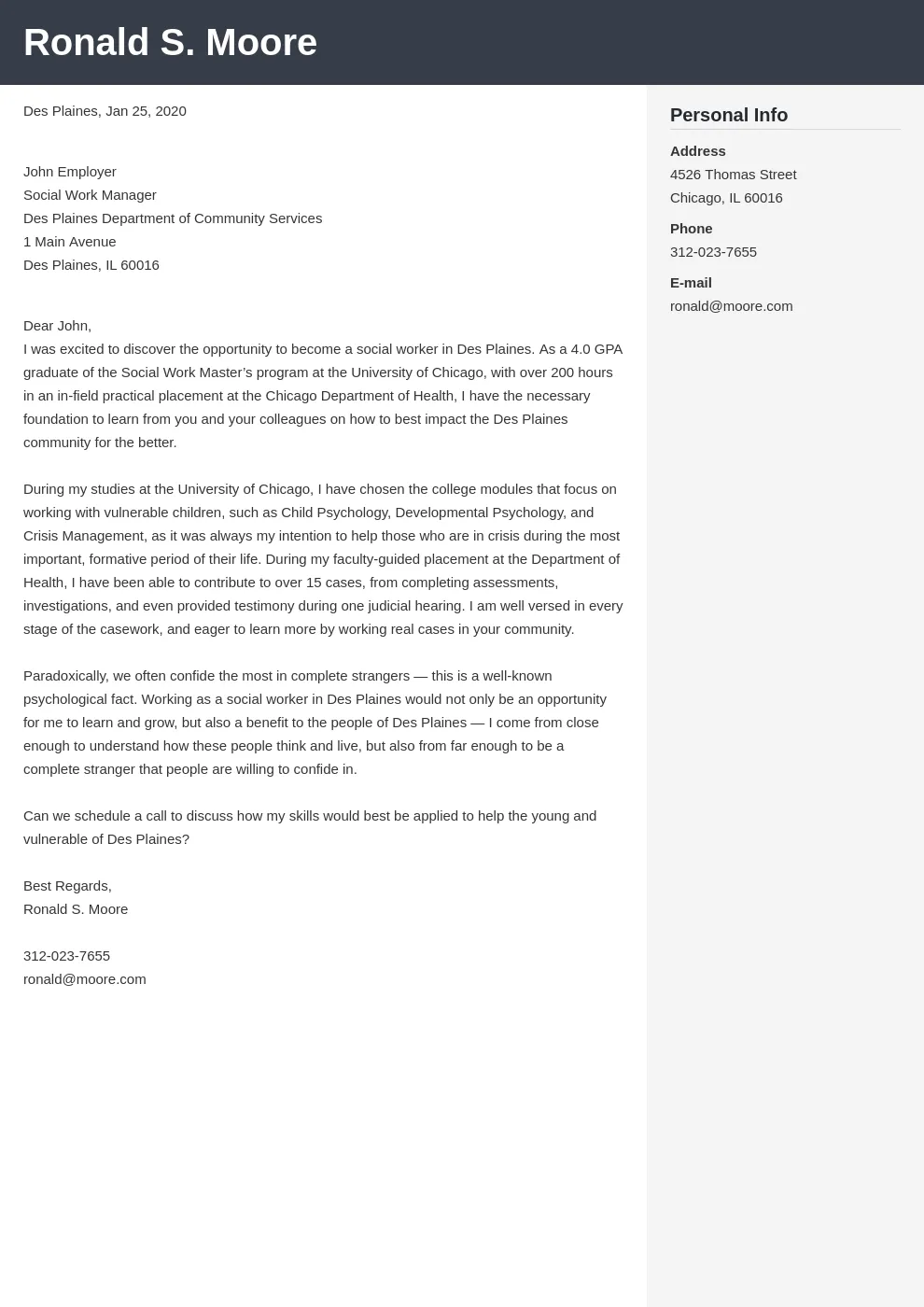Securing a social work internship is a crucial step in your career path. A well-crafted cover letter is your first chance to impress potential employers and showcase why you’re the ideal candidate. This guide provides the top 5 tips for writing a compelling social work internship cover letter that grabs attention and increases your chances of landing your dream internship. By following these guidelines, you’ll create a cover letter that highlights your strengths, demonstrates your passion, and sets you apart from the competition. Remember, the goal is to convince the hiring manager that you have the skills, dedication, and genuine interest to excel in the role and contribute positively to their organization. Let’s begin with the most important element.
Highlight Your Passion for Social Work
Your cover letter should immediately convey your enthusiasm for social work and your commitment to helping others. Start by expressing your genuine interest in the field and why you’re drawn to it. Share a personal anecdote or experience that sparked your passion for social work. This could be a volunteer experience, a personal encounter, or an academic project that fueled your desire to make a difference. Demonstrate your understanding of the core values of social work, such as empathy, social justice, and advocacy. Illustrate how these values resonate with you and guide your approach to helping individuals and communities. This initial impression will set the tone and encourage the reader to continue reading, eager to know more about your story and motivations. (Image: social-work-passion)
Demonstrate Relevant Skills and Experience
Next, highlight the skills and experiences that make you a strong candidate for a social work internship. Identify the key skills mentioned in the job description, such as communication, active listening, problem-solving, and crisis intervention. Provide specific examples of how you’ve utilized these skills in previous experiences, such as volunteer work, coursework, or other relevant activities. Avoid generic statements and focus on demonstrating your abilities through practical examples. Describe how you’ve applied theoretical knowledge in real-world situations. Briefly explain the challenges you faced and how you overcame them. This evidence of your practical skills and ability to apply your knowledge will make you an appealing candidate for a social work internship. (Image: social-work-skills)
Showcase Your Understanding of the Organization
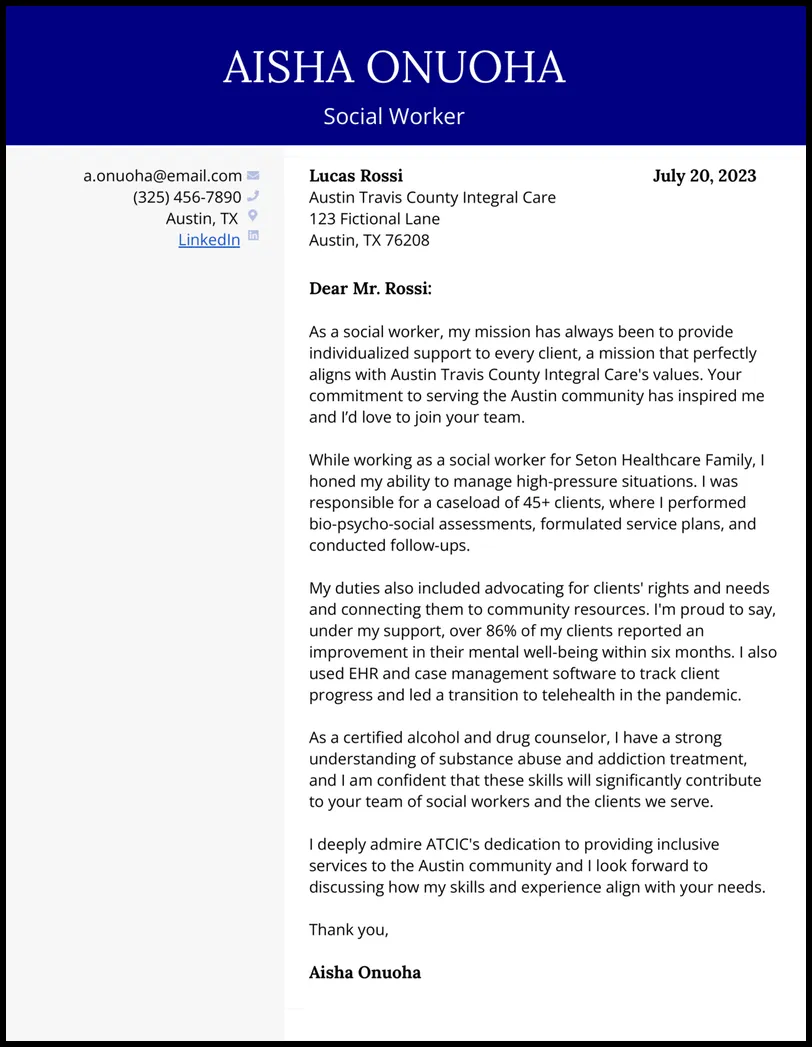
Research the organization thoroughly. Read their mission statement, review their programs, and understand their target population. Demonstrate that you understand the organization’s values, goals, and the specific services they provide. Explain how your interests align with their mission, and why you are particularly drawn to their work. This step is critical to stand out from generic applicants. Understanding their specific needs and requirements is extremely important to make a great impact. Tailor your cover letter to the specific organization and highlight what you can bring to their team and demonstrate you have the required knowledge and understanding. (Image: organization-research)
Tailor Your Letter to the Internship
Every internship has unique requirements and expectations. Carefully review the job description and address each point directly in your cover letter. Use the job description as a guide to determine which skills, experiences, and qualifications to emphasize. Don’t simply restate the requirements; instead, explain how your background directly aligns with the internship’s objectives. Focus on the skills and experiences most relevant to the specific internship you’re applying for. This targeted approach shows that you have carefully considered the role and are serious about the opportunity.
Emphasize Your Strengths and Achievements
Highlight your key strengths and achievements that are relevant to social work. Think about what makes you unique and what qualities you possess that would make you a valuable intern. Consider skills such as empathy, communication, problem-solving, cultural sensitivity, and the ability to work with diverse populations. Think beyond the basics, highlighting your capacity to manage stressful situations and your adaptability. Focus on what you’ve accomplished and the positive impact you’ve made in previous experiences. Quantify your achievements whenever possible. Highlighting your specific attributes will convince the hiring manager that you possess the traits necessary to be successful in the role. (Image: strength-achievement)
Provide Concrete Examples
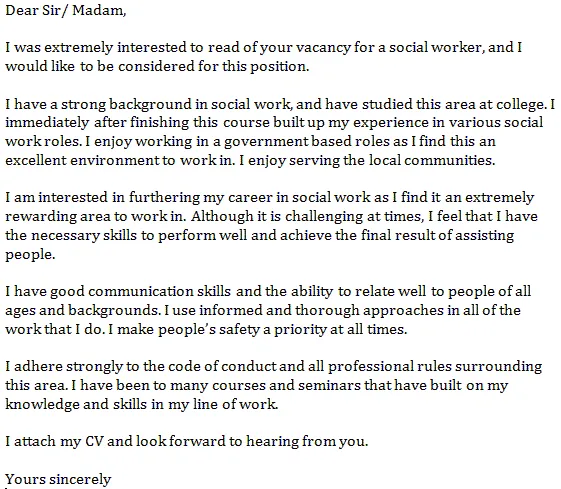
Support your claims with concrete examples. Instead of simply stating that you possess strong communication skills, provide an example of a time you successfully communicated with a client or colleague. When possible, use the STAR method (Situation, Task, Action, Result) to structure your examples, providing context, the task you faced, the actions you took, and the outcome you achieved. These examples should clearly demonstrate your abilities, such as your ability to lead or manage people and projects. Providing concrete examples validates your claims and gives the hiring manager a clearer understanding of your skills and potential. Include instances of solving problems and/or achieving positive outcomes for people, communities, or the organization. These show that you can act and that you have real-life experience.
Quantify Your Accomplishments
Whenever possible, quantify your achievements. Instead of saying you improved client outcomes, state the percentage by which you improved them. Instead of saying you managed a caseload, specify the number of clients you assisted. This approach gives the reader a clearer picture of your impact. Use numbers, statistics, and metrics to illustrate your effectiveness. This will make your accomplishments more tangible and impressive. Quantifiable results demonstrate the value you can bring to the organization. For example, detail how you improved the results of a project or decreased problems or inefficiencies.
Address the Specific Requirements
Carefully review the internship job description and address each of the listed requirements. If the description asks for specific skills, experiences, or qualifications, be sure to highlight those in your cover letter. Make a direct connection between your background and the requirements outlined. Ensure that your letter demonstrates that you possess the qualifications, experience, and skills that the employer needs. This approach will show that you are serious about the internship and that you have taken the time to understand the specific needs of the position. This will help you make an excellent first impression. Always tailor your resume and cover letter to each unique job application.
Review the Job Description
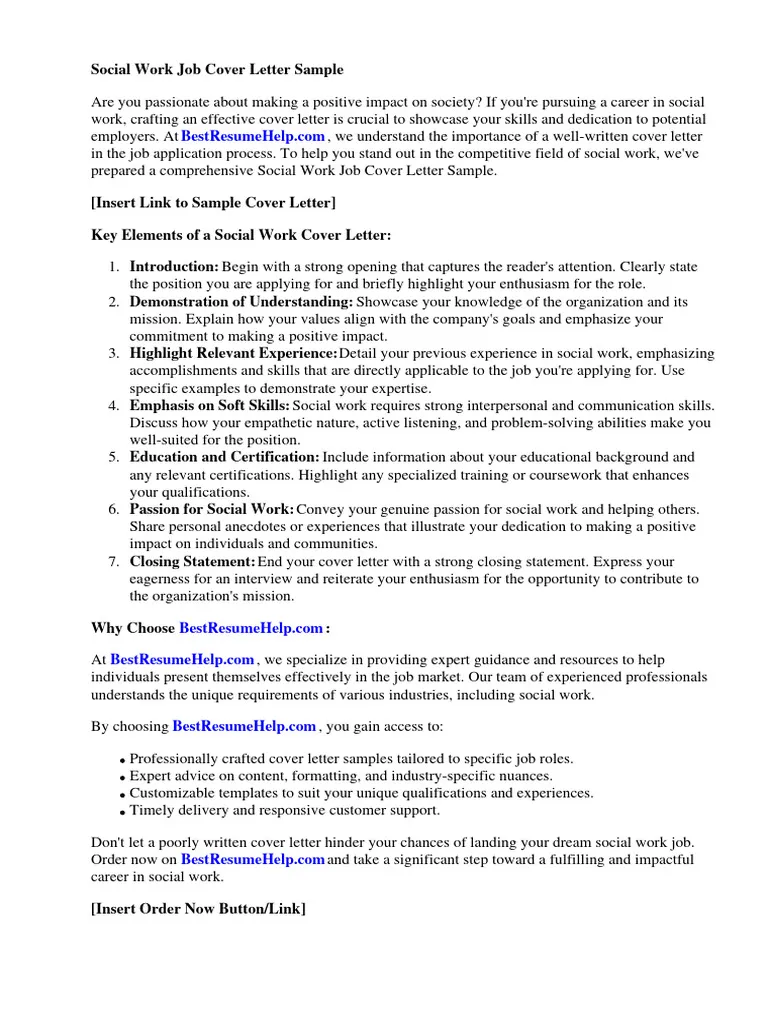
The job description is your roadmap. It outlines the essential duties, qualifications, and desired skills for the internship. Take time to thoroughly analyze the job description, identify the key responsibilities and skills needed, and then customize your cover letter to reflect your ability to meet those demands. Before applying, review the job description. If it’s an online job, save the job description to revisit later and ensure that you’re addressing the specific requirements and expectations of the position. Ensure that your letter contains the information that directly addresses the requirements listed in the job description. This will help you stand out from the competition.
Match Your Qualifications
Align your qualifications with the requirements of the internship. Use the job description to identify the keywords and phrases that the employer uses to describe the ideal candidate. Incorporate those keywords and phrases into your cover letter in a natural and seamless way. Provide clear examples of how your skills and experience align with the job description’s requirements. Use examples of previous projects, volunteer activities, or coursework to demonstrate your abilities and how they can contribute to the organization. This matching will ensure you have a winning cover letter.
Proofread and Polish Your Cover Letter
A polished, error-free cover letter is crucial. Proofread carefully for any grammatical errors, spelling mistakes, or typos. A professional and well-written cover letter will make a positive first impression. Ensure that your cover letter is easy to read, with a clear and concise writing style. Your cover letter should be properly formatted, using a professional font and appropriate margins. Keep your language clear, concise, and free from jargon. Use strong action verbs to describe your accomplishments and skills. A polished cover letter demonstrates your attention to detail and commitment to presenting yourself in a professional light. (Image: proofreading-cover-letter)
Check for Grammar and Spelling Errors
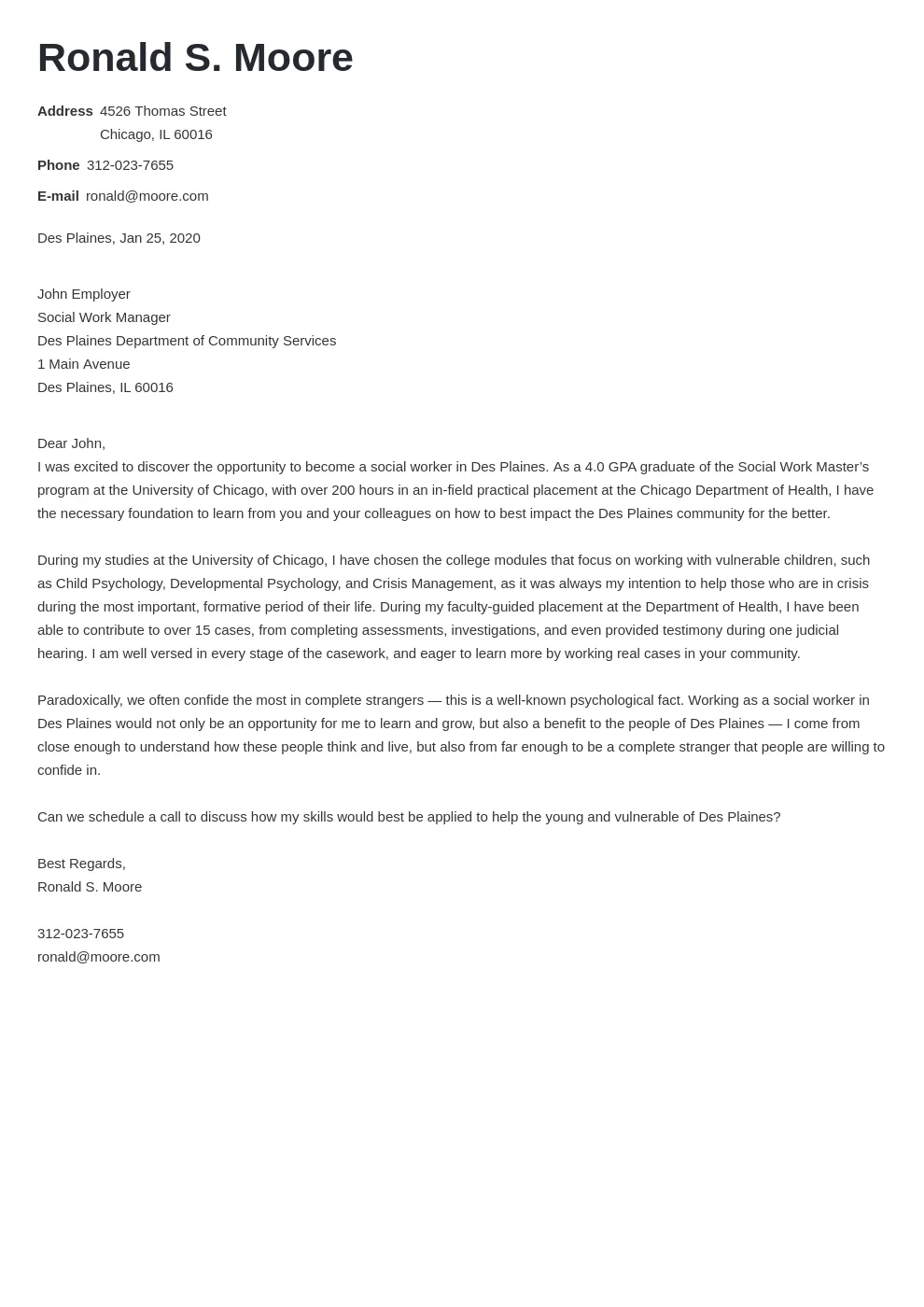
Grammar and spelling errors can undermine your credibility and professionalism. Before submitting your cover letter, carefully proofread it for any mistakes. Use a grammar checker to identify and correct errors, but don’t rely solely on automated tools. Always read your letter manually to catch errors that automated tools may miss. Ensure that your sentences are clear and that your writing flows smoothly. This can be achieved with the help of a professional proofreader. Asking a friend, family member, or career advisor to review your cover letter can also help. Even a small typo can distract the reader from your qualifications and abilities.
Ensure a Professional Tone
Maintain a professional tone throughout your cover letter. Avoid slang, informal language, and overly casual expressions. Use formal language and address the hiring manager or committee by name if possible. Demonstrate respect for the organization and the internship opportunity. Show courtesy and avoid using phrases that sound demanding or entitled. Professional language builds trust and indicates that you take the application process seriously. Ensure that your language is suitable for the professional context of a social work internship. Your approach and writing will create a positive impression and increase your chances of success.
Seek Feedback
Ask for feedback from trusted sources, such as career counselors, professors, or mentors. Their insights can help you improve your cover letter and ensure that it effectively communicates your qualifications and enthusiasm. Ask them to review your cover letter and provide feedback on its clarity, content, and overall effectiveness. They can provide objective suggestions on how to strengthen your letter and make it more compelling. Having a fresh pair of eyes on your cover letter will help identify areas for improvement. Utilize feedback and make revisions. (Image: cover-letter-feedback)
Following these tips will help you create a compelling social work internship cover letter. By highlighting your passion, demonstrating relevant skills, and tailoring your letter to the specific internship, you can significantly increase your chances of success. Proofread carefully, seek feedback, and always present yourself professionally. Good luck with your applications!
